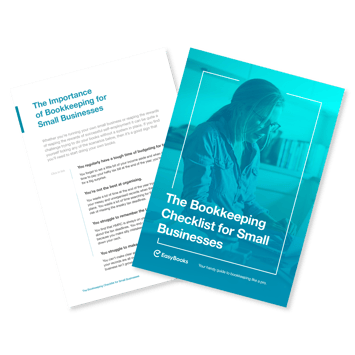From utilising a free app to hiring a full-time bookkeeper that will probably require a starting salary of around £25,000 per annum - the bookkeeping costs for a small business can vary. However, this is dependent on what you need for your finances.
Here are the main avenues you can go down when it comes to bookkeeping for your business.
- Hire an In-House Bookkeeper to Take Care of Things
- Outsource a Bookkeeper or Accountant to Do Your Books
- DIY - Save Money and Time
Hire an In-House Bookkeeper to Take Care of Things
When you’re self-employed, it can be challenging to know if you need to submit tax returns and how you go about it. You might even forget some of the deadlines that HMRC has put in place. An in-house bookkeeper can work alongside you and help you make better-informed business decisions.
Keeping it all in-house lets you have full control and visibility of your books. Although, keep in mind that you’ll have to pay somebody for their time. If they call in sick or are on holiday, who’ll be there to record your financial records and create invoices?
However, hiring a bookkeeper to work in-house isn’t always a viable option, it can be expensive for just a few tasks that you could easily do yourself. Plus, the more you do it yourself, the quicker you’ll get to grips with the ins-and-outs of bookkeeping.
When work isn’t always guaranteed and it differs month to month, it doesn’t just affect you. It’ll also impact those who you employ.
Outsource a Bookkeeper or Accountant to Do Your Books
There are many advantages to outsourcing to a bookkeeper. They remove the headache of getting your books in order and you get access to expert services and talented professionals.
Although specialists in the financing field are handling your books in this case, it’s not necessary to have a degree or certification to implement good bookkeeping practices. Accounting is something that will require a professional but being your own bookkeeper is simple.
This option is ideal if you oversee a big company with complex business transactions. However, for self-employed or freelancers that are still experiencing growth, these extra costs can go towards helping other areas of your business instead.
As long as you have a basic understanding of bookkeeping, then you’re good to go.
The bookkeeper you choose to outsource to will have lots of other clients so won’t be as accessible as somebody working in-house or if you were doing it yourself. This means waiting longer for a response in a crisis. With imposing deadlines and lack of communication, it can stunt your business growth.
An outsourced option can mean sometimes mean feet up and no fuss. But without a visual on your books, you can lose sight of business expenses and make uninformed decisions. It can also present some security risks when handing over sensitive data as not everybody is understandably comfortable handing this information over.
DIY - Save Money and Time
Thanks to the rising popularity of user-friendly apps, the process of bookkeeping is now easier than ever to do yourself. Most have free trials available to try, so if you can make it a simple task, then why not? These free trials are a beneficial way of seeing which apps you like, how easy they are to use and if it’s something you want to commit to.
Regardless of the industry you work in, bookkeeping is essential. There’s nothing more convenient than having your books in your back pocket on a user-friendly app. There are also various other bookkeeping software options that could work for you, both free and some that require a subscription fee with tailored plans. There’s also desktop software available if that’s what you prefer.
Only ever pay for what you need for your business. Move away from spreadsheets that are prone to error. Although it seems cost-effective and the cheaper option, it can be harming your business and taking more time to actually do what is required.
It can feel daunting at first. But doing it yourself not only lets you stay in control of your books but also saves you money too. The more familiar you get with the bookkeeping process and terminology, the better it’ll be for your business.
Now that you know the typical bookkeeping costs for a small business, it’s a good time to learn how to correctly do it yourself.
DIY and Save Money With Our Bookkeeping Checklist
Outsourcing or paying for an in-house bookkeeper doesn’t work for everybody. It can be costly and unnecessary, especially when getting started is so simple. There’s no better time than now to take charge of your business financial records.
Stay organised and keep your bookkeeping in order with our checklist. Whether you’re looking to audit your current bookkeeping process or simply want to see if you’re on the right track, download our free checklist now.








